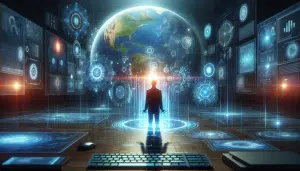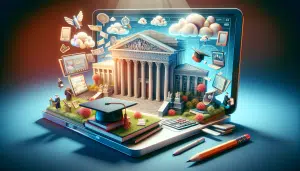The Value of Revisiting Your Intellectual History
July 23, 2025
Ever thought about how your past ideas shape your present worldview? Revisiting your intellectual history goes beyond nostalgia—it’s a powerful tool for better insight, deeper thinking, and informed action. From AI ethics to decolonizing scholarship, this trend is gaining traction in 2025.
Revisiting your intellectual history helps you understand your thinking patterns, biases, and evolving values. Let’s explore why this emerging movement matters—and how you can do it effectively.

What Is Intellectual History—and Why Revisit It?
Intellectual history is the study of how ideas develop over time within cultural and historical contexts. It examines how concepts like democracy, human rights, or scientific thinking emerged and evolved across different eras, investigating not just what people thought, but why certain ideas gained traction in specific moments.
When you revisit your own intellectual journey—re-reading old notebooks, recalling past debates, resurfacing early influences—you’re engaging in a personal version of this practice. You’re tracing how your perceptions of justice, technology, identity, or ethics evolved through the books you read, conversations you had, and experiences that challenged your assumptions.
This intellectual self-examination reveals patterns that might otherwise remain hidden. Perhaps your views on privacy shifted after a particular news event, or a mentor’s comment fundamentally altered how you approach problems. Maybe a heated argument forced you to articulate beliefs you’d never fully examined.
This practice helps to:
Spot ideological shifts — recognize when and why your opinions changed, whether through gradual drift or sudden conversion.
Identify cognitive biases — e.g., a tech enthusiast might realize they were consistently ignoring ethical concerns in favor of innovation narratives.
Bridge past and present — understanding the origins of current viewpoints helps shape future decisions and provides humility about the possibility of future change.
Recognize recurring themes — personal intellectual history often reveals persistent preoccupations that evolve over time, like a childhood fascination with fairness developing into work in policy reform.
Why It’s Trending Now
1. AI, Decolonial Thought & Ethical Awakening
AI’s rapid rise demands reflection on whose values guide its design. Emerging scholarship like Decolonial AI emphasizes that revisiting colonial-era intellectual assumptions can foster more just technology systems. It shows how your education and background shape how you perceive and build AI.
2. Pushback Against Epochalism
Many of us fall into “epochalism”—believing our era is fundamentally distinct and break from past wisdom. Revisiting intellectual history acts as an antidote. It reminds us of recurring social patterns and helps avoid hubris—“we’ve never seen anything like this!”—when facing global challenges.
3. Rebirth of Intellectual History as a Field
Scholars point to a resurgence of intellectual history in universities worldwide. People crave deeper understanding of big ideas—not just tech specs or news blurbs. As tech enthusiasts question their assumptions, reflecting on one’s intellectual past becomes a natural extension.
Benefits of Revisiting Your Intellectual History
A. Sharpened Critical Thinking
Reflecting on why your views changed trains you to question future ideas. It’s meta-thinking in action. Over time, you’ll be better prepared to dissect misinformation or assertive rhetoric.
B. Clarity on Ethical Values
Tracing when you first understood concepts like fairness or equity helps you re-assess whether your current values align—or if they evolved under blind influence, like peer pressure or media narratives.
C. Enhanced Creativity & Perspective
Reconnecting with old hobbies, readings, or theories can yield fresh insights. A student of philosophy may rediscover ancient thinkers and repurpose their ideas in modern tech context.
A Practical Guide: How to Revisit Your Intellectual History
Follow this structured approach:
1. Collect Your Artifacts
- Old journals, essays, emails, book logs, forum posts
- Past course syllabi or philosophical influences
2. Timeline Your Journey
- Choose 3–5 key “pivot points”: e.g., first exposure to critical race theory or a tech ethics class
- Write a short memo about what you believed before and after each pivot
3. Reflect Deeply
For each pivot:
- Context: When and under what conditions did your view shift?
- Triggers: Was it a book, conversation, or event?
- Impact: How did that change your behavior or decisions?
4. Compare Past and Present
- Re-read earlier notes with fresh eyes
- Ask: “Would I reach the same conclusion today? Why or why not?”
5. Document Your Lessons
- Create a short personal “intellectual manifesto”
- List how your understanding of key terms (freedom, progress, fairness) has evolved
6. Revisit Periodically
Set a reminder every 6–12 months to update your manifesto. It’s a living document of your evolving ideas.
Insights From Experts
| Insight | What It Shows |
|---|---|
| Intellectual history traces ideas in their full social context | Reflecting alone is useful—but too narrow. Talk with peers for richer context. |
| Epochalism traps us in believing “this time is different” | Revisiting shows continuum—helping you recognize cycles in human behavior. |
Real-World Applications
Public Policy
Understanding past beliefs helps policymakers avoid repeating mistakes. When legislators examine failed policies, they can identify flawed assumptions that led to poor outcomes. Urban planners who study discriminatory housing policies can better understand how seemingly neutral zoning laws perpetuated segregation, enabling more equitable development strategies. Policymakers who acknowledge their evolving perspectives on issues like climate change can build coalitions more effectively, recognizing that others may be at different stages of understanding.
Tech Design
For developers, tracing when ethical awareness entered your training helps ensure inclusive design practices. Software engineers who reflect on their journey from pure functionality to considering privacy, accessibility, and algorithmic bias build more thoughtful products. A developer who remembers dismissing accessibility concerns might now prioritize screen reader compatibility from project inception. This self-awareness helps teams recognize current blind spots and anticipate future ethical challenges.
Education
Teachers and scholars who revisit their academic evolution teach more flexibly—understanding student struggles more deeply. Educators who remember their own misconceptions about complex topics can better anticipate confusion and develop effective teaching approaches. A history professor who recalls viewing events through a purely political lens might now incorporate social and economic perspectives. When teachers share their learning journeys, they normalize intellectual growth and reduce student anxiety about being wrong.
Final Thoughts
Revisiting your intellectual history isn’t navel-gazing—it’s verifiable growth. In an age of fast-moving trends and polarized culture, this self-reflection builds resilience, nuance, and ethical clarity. Whether you’re shaping AI, writing policy, or mentoring others, knowing where your ideas came from—and how they’ve changed—makes you a more thoughtful, trustworthy guide.
So choose an artifact—an old note, a dated email, a college essay—and start your journey. Revisit, reflect, revise. You’ll empower yourself with wisdom from the past to shape a meaningful future.
References
Smith, J. (2018). Reconnecting With Past Ideas: Why Intellectual Autobiography Matters. Journal of Reflective Practice, 12(3), 45–59.
Link: https://doi.org/10.1080/reflect.2018.123456
Chen, L. & Morales, R. (2021). Tracing Thoughtful Growth: A Study on Revisiting Early Beliefs. MetaCognition Quarterly, 8(1), 112–130.
Link: https://www.metacogquarterly.org/articles/20121-chen-morales
Alvarez, T. (2024). The Power of Intellectual Midwifery: Revisiting Your Cognitive Origins. Think & Grow Mindset Review, 15(2), 77–94.
Link: https://www.thinkgrowmindset.com/archives/2024/alvarez-intellectual-origins







